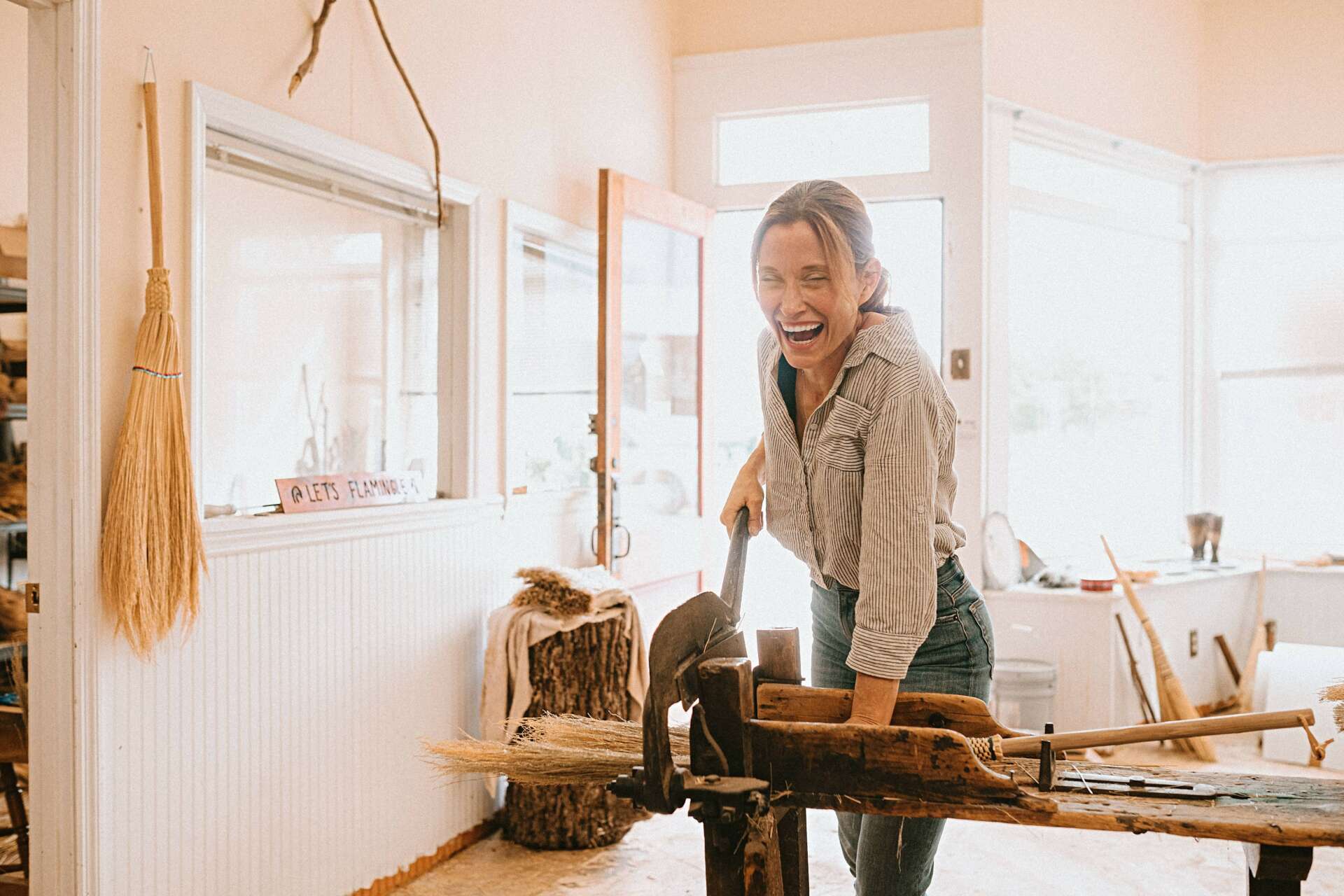Alright – so today we’ve got the honor of introducing you to Cynthia Main. We think you’ll enjoy our conversation, we’ve shared it below.
Alright, Cynthia thanks for taking the time to share your stories and insights with us today. Are you able to earn a full-time living from your creative work? If so, can you walk us through your journey and how you made it happen?
I do make a full time living at my creative business, Sunhouse Craft! I started this business as a side project: I learned to weave brooms a decade ago, just after I had left my job running a teaching wood shop in Chicago. I was always looking to tie my deep commitment to sustainability, or love for the planet with my fabricating/art life, so I left my job to learn coopering, or traditional barrel making at a paid internship, and took a broom making class on a lark, and it stuck. Here was a craft that needed virtually no infrastructure, just a knife and some string, and I kept at it part time while I did build a backyard cooperage with a friend, and pursued farming and community living in Northeast Missouri. I was deeply enamored with ideas around community living, radical simplicity, and gift economy as different economic models. Somewhere in there I burned through all of my savings, but enjoyed commune life and farming. But realistically, financially, I would farm as part of the community, sell out at a show or two a year, and hop back up to Chicago every once and a while for a week or so to make a little money in a cabinet shop. At one point in all this, I lived in a hammock, shared a communal kitchen with no electricity and running water. But passing through to visit my family in North Carolina, I’d travel through Berea. The city then had a program that gave you a studio and a stipend of 1200/month in hopes to replace the retiring crafts community the town is so famous for. So after 4 years of part timing it, I got into this program. I think that year was absolutely pivotal. It gave me time to create my business in a more serious way, and experiment and find my voice in the craft. From there, we have a lending organization called the Mountain Association that gives low interest loans to businesses in rural Appalachia: the first one I took out was 3000, then 15, ooo, both of which I paid off, then was able to consolidate the rest of my business debt…(on credit cards….). Which is where I am today. Whitaker bank also let us have a line of credit, based on our finances: we had crazy growth the first three years of business, and there wasn’t a way to afford supplies even for the coming months without them. Things I did that I think were crucial: -get paid to learn on the job
-learn financial literacy
-take advantage of free business resources like the SBDC and other small business centers
-bought a building and restored it ourselves since it’s was way cheaper than renting in a college town
-not for everyone, but I borrowed a fair amount of money to make this happen: I keep very good financial records, and projections these days, so banks can see my plans and history
– I’m really comfortable with no safety net, for better or worse.
I wish I:
Honestly, it went how it went. If I’d had a pile of money and a business education, it could have gone faster, but honestly, I’m such an experimenter in the name of sustainability, I think all the mistakes I’ve made would have been very amplified in a hard way.
Sometimes I think not having a backup plan really forced my hand, and loving this business inspires me to keep it going!
I would add, I hear a lot of creatives say math, keeping numbers,finances, etc. isn’t for them, and I’d encourage them to poke at that assumption.
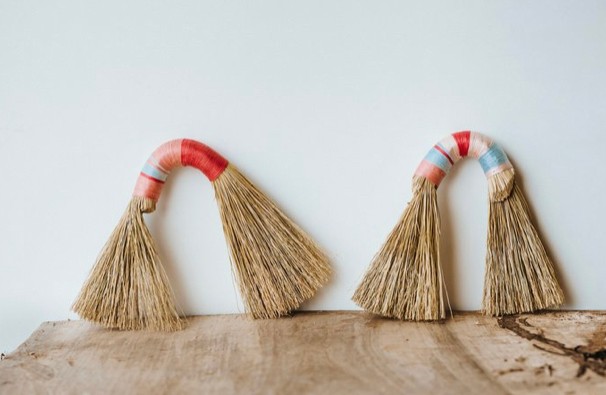
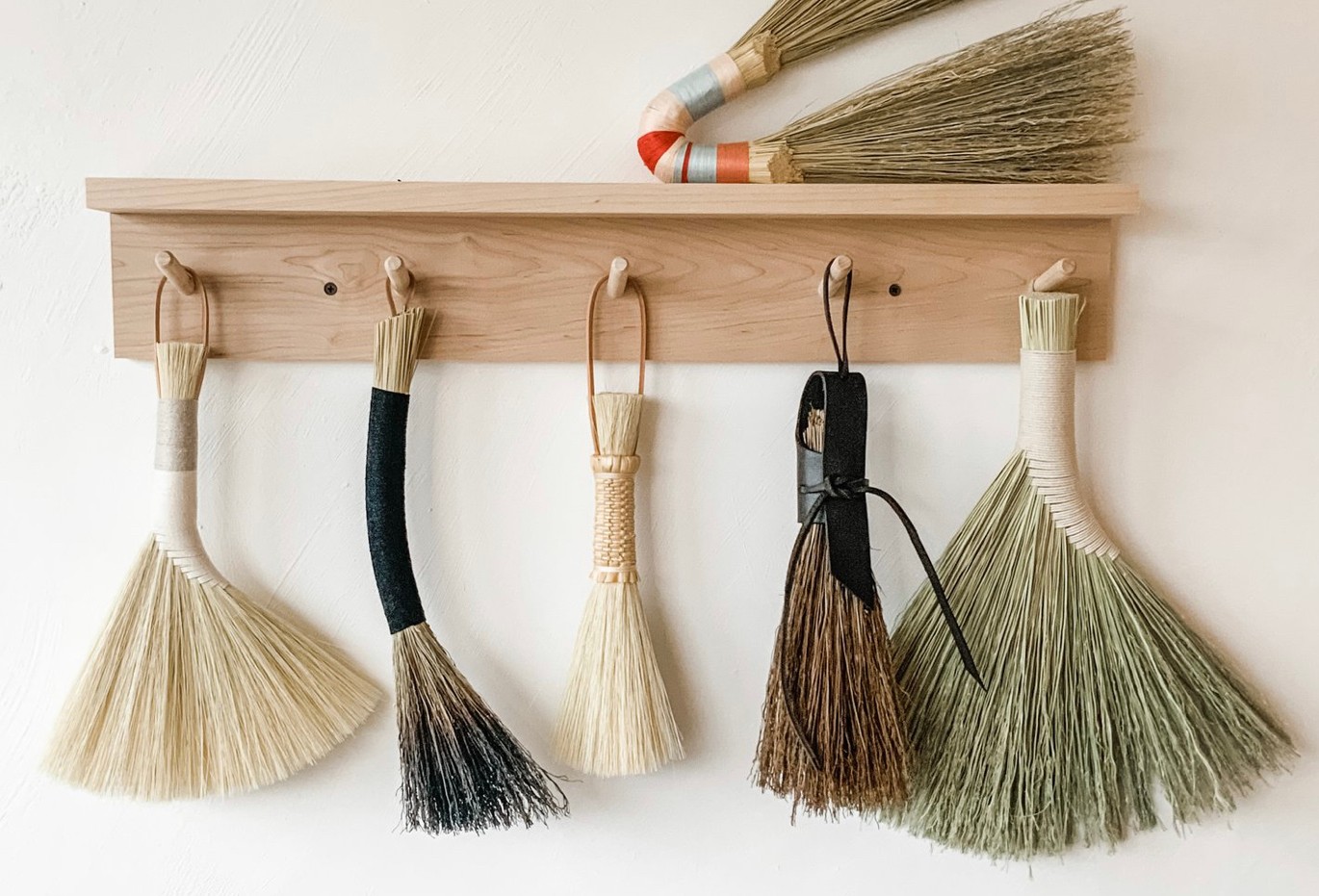
Great, appreciate you sharing that with us. Before we ask you to share more of your insights, can you take a moment to introduce yourself and how you got to where you are today to our readers
Hi my name is Cynthia Main, and I feel a lot of permission to be a creative human who is absolutely in love with the planet! I have been working to combine sustainability, and a desire to find harmonious ways of working my whole adult life. I’ve worked at organic farms, native plant nursery’s, for landscapers, as a metal fabricator, a set builder for spectacle theater, musician, trapeze instructor, and in wood shops , always working to weave my rural life and my art life together. The current incarnation is sunhouse craft: a business that makes everyday objects for the home using many traditional Appalachian techniques, and works hard to resurrect a local supply chain.
I am most proud of my work in sourcing materials, and bringing so many materials into the craft in my pursuit of a more sustainable way of making. I also love sharing the craft of broom making: When I started into the craft it was, for the most part, in a fairly static place. I’m excited to be a part of all the good, experimental energy coming into the craft!
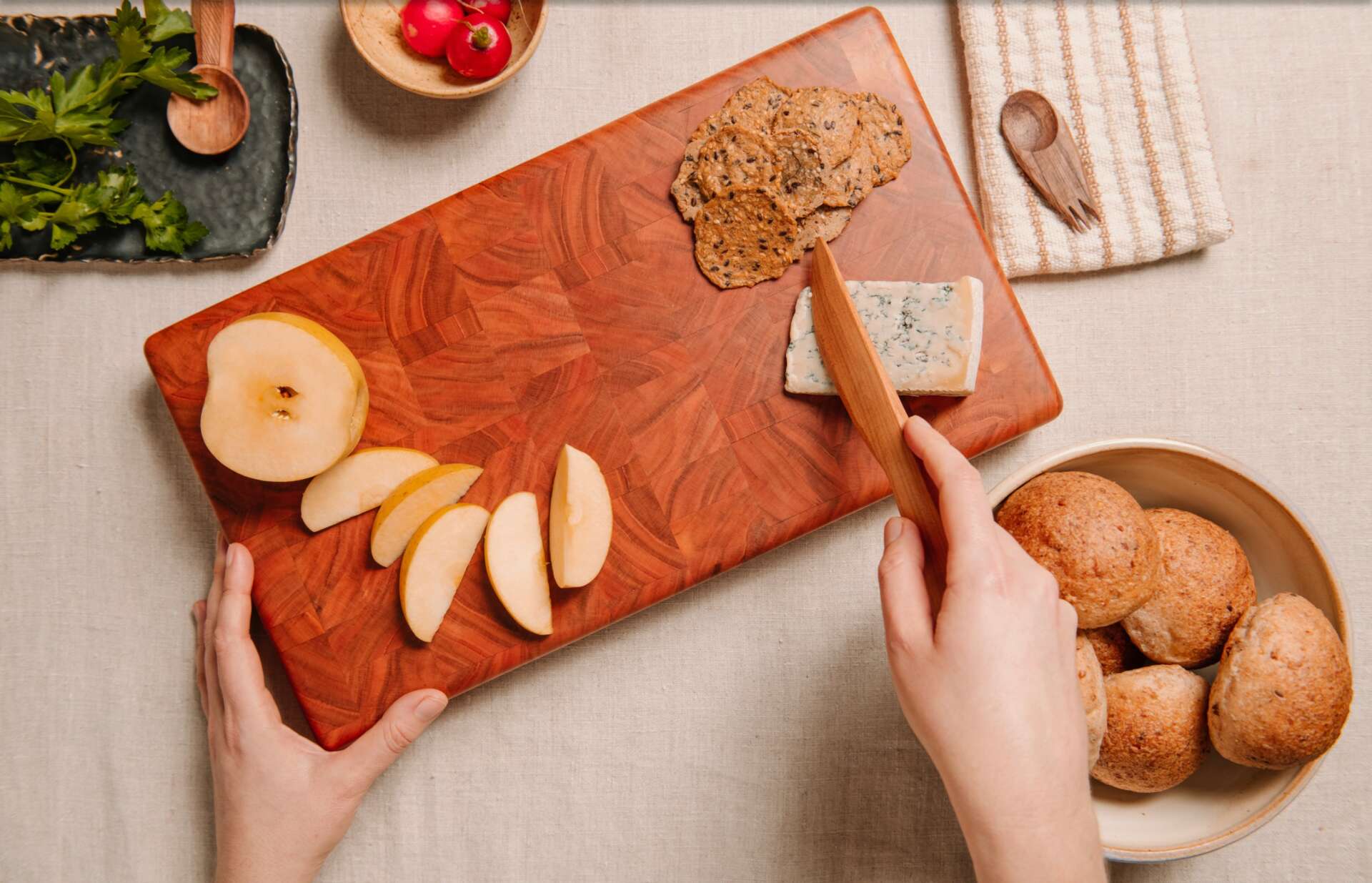
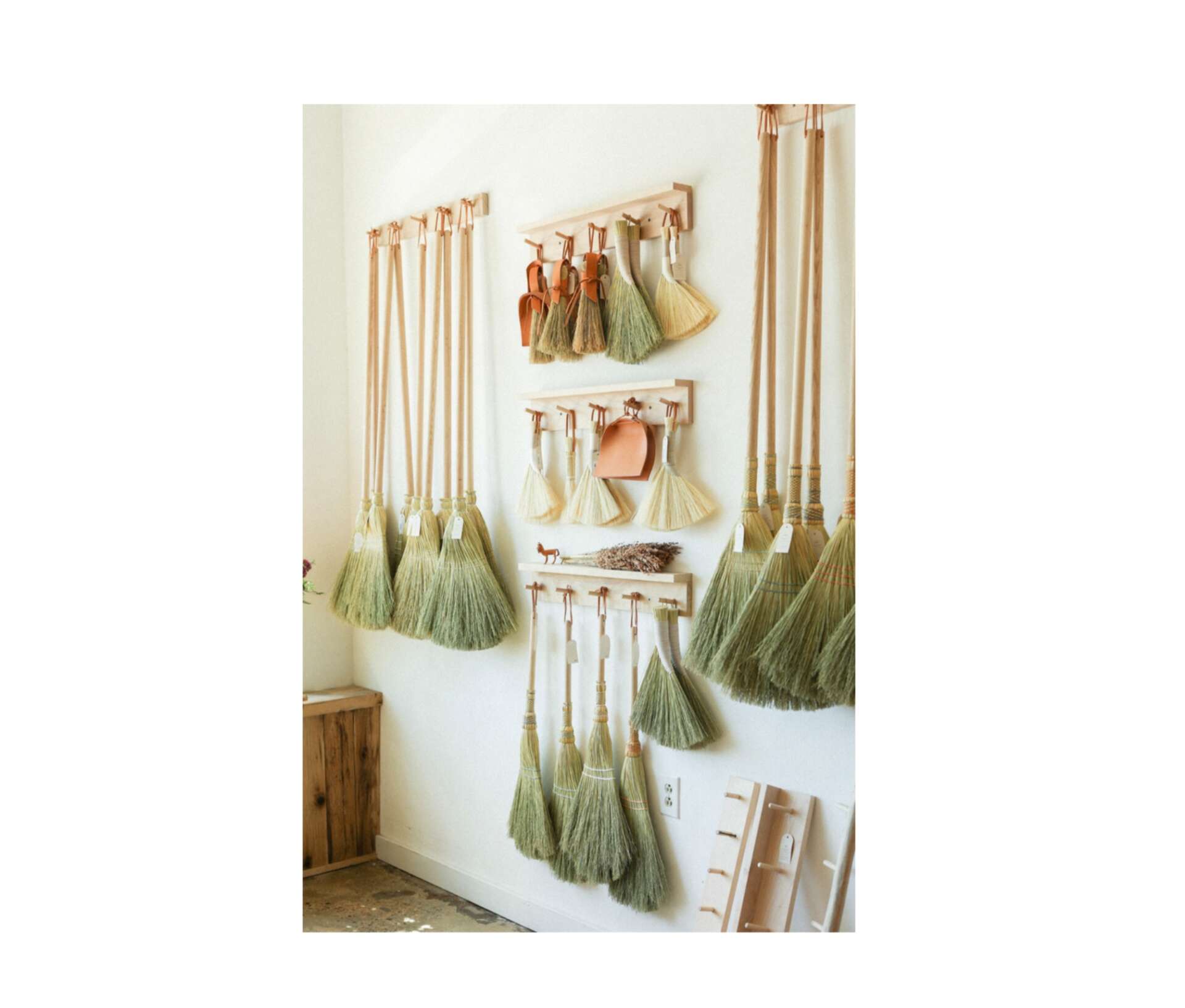
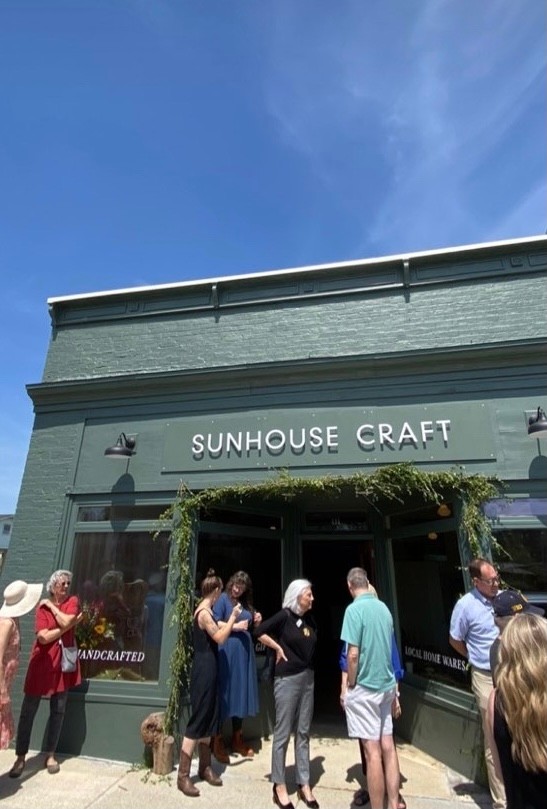
Let’s talk about resilience next – do you have a story you can share with us?
So many! I think most folks still in business have so many fails, but it’s just a part of it!
I did go to a very high profile show where I expected sales to be amazing. Due to logistical reasons on the part of the show, it was absolutely not well attended.
I went home the first night, thought about what I wanted from the show: to make good connections, and to help my business thrive, so I used the time in the hall to really get to know each vendor who was also there, ask them for business advice, or what helped them thrive, and just generally connect to the community that was there (a KEY part, in my opinion of being a successful maker).
I got a piece of advice, to apply for the made in the south awards in garden and gun magazine, which getting recognized in was the key piece that let me take the risk on buying the building we now call home. If you are a creative maker, I think you will be constantly making lemonade, so to speak, its a creative joy, really.
Learning and unlearning are both critical parts of growth – can you share a story of a time when you had to unlearn a lesson?
I think that mental health, ( as much as a trend as it may be) cannot be understated. I had extreme anxiety, and honestly, a pretty low sense of self worth, that until I managed, after years of working on it, to break through left me always undervaluing myself. It made it hard, financially speaking, to put wheels on the bus. Definitely connecting my work to a larger issue like sustainability makes this easier too, but I have definitely watched my business flourish as I have become healthier. So I’d have to say I had to unlearn that I didn’t need anything for myself, and that taking up space was a-ok. On a good note, I got to bring all the skills of a lifetime with me, so as I got clear on this, my business thrived quickly!
Contact Info:
- Website: www.sunhousecraft.com
- Instagram: @sunhousecraft
- Facebook: Sunhousecraft
- Linkedin: Cynthia Main
- Youtube: Sunhouse Craft
Image Credits
Ariana Jordan, Francisco Lopez, Cynthia Main


